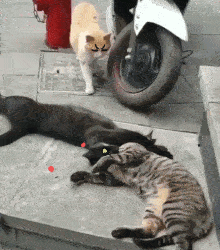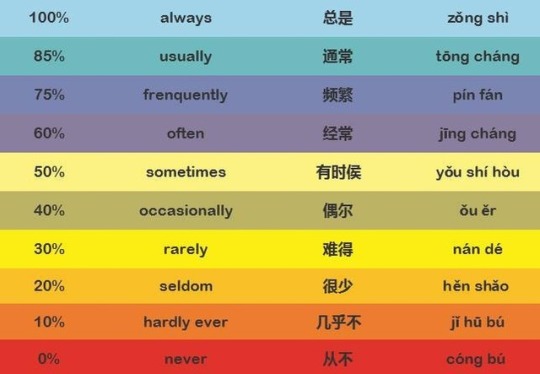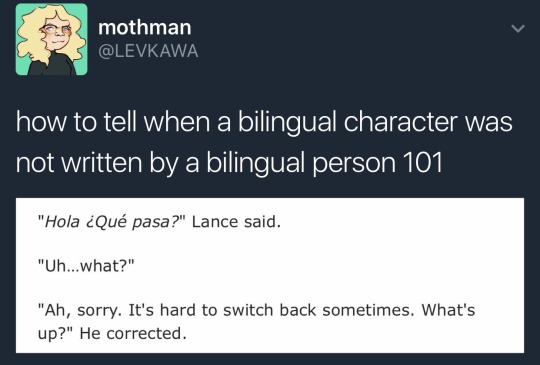Photo










Marks and Rec: Misc #782
(The more you know!) (Dialogue from tumblr and suggested by anon; Facilier pendant from etsy.)
13K notes
·
View notes
Text
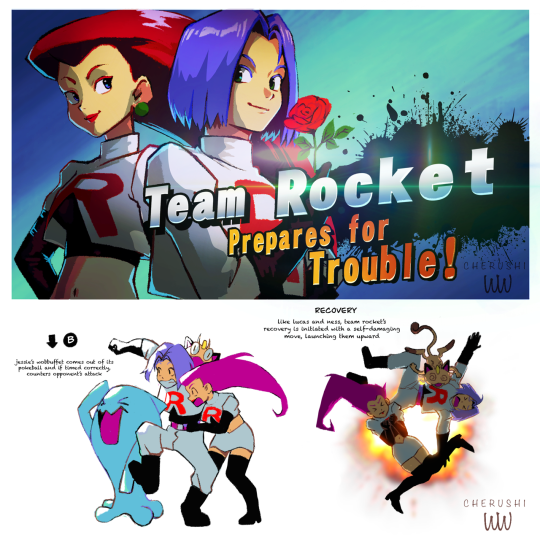
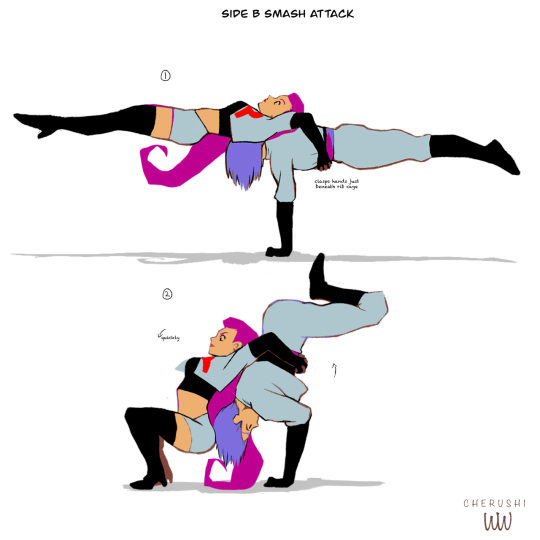
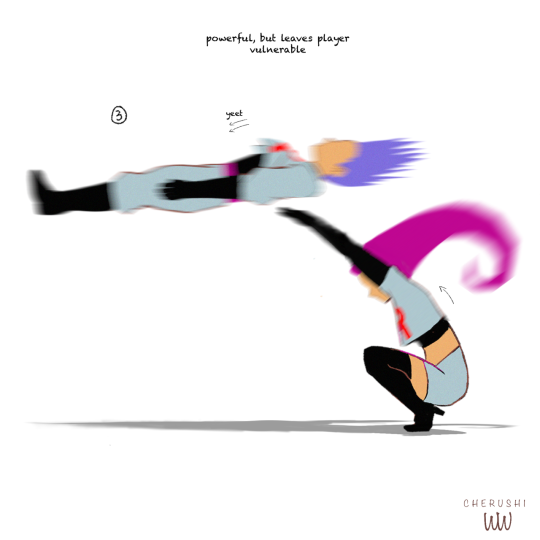
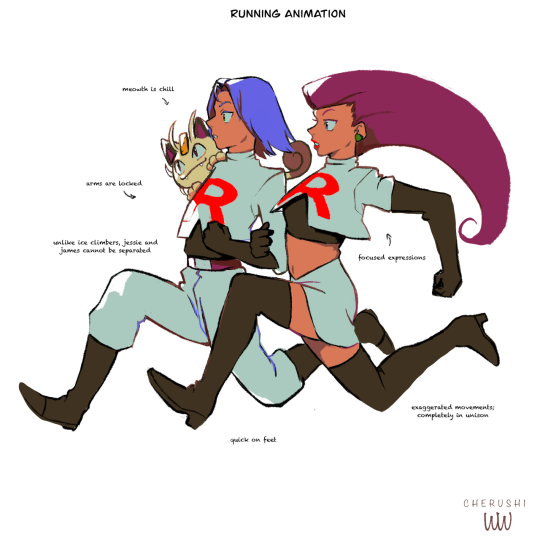
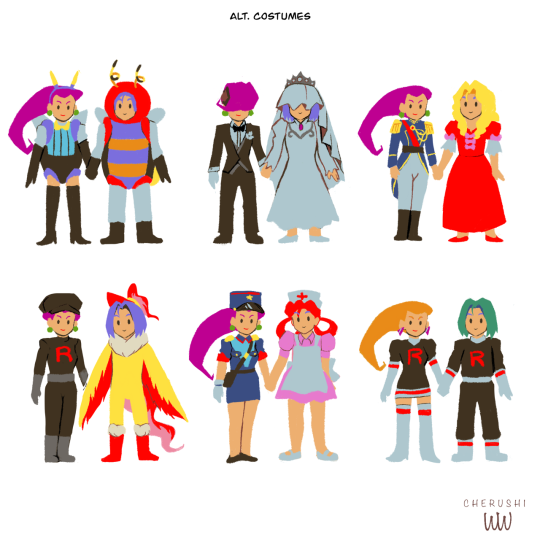
I really want Team Rocket to be in Smash
136K notes
·
View notes
Photo

Due to tumblr’s limit on the number of links that can be put in a single post I am breaking up the Mandarin resource list into two posts. This is the vocabulary section:
counter words
frequency list
measure words
swadesh list
top 88 vocabularies [scans]
word of the day tool
Keep reading
366 notes
·
View notes
Photo




Hey, everyone! I’ll be at Anime Expo this year. I’ll have NewsPrints, HeadLines, APPEAL! Redux, Saint for Rent stands, and more new stuff! :D Come find me at the Dealer’s/Exhibitor’s Hall!
Exhibitor’s Hall – BOOTH 1027 + 1127
62 notes
·
View notes
Text
Vocab Party: Grammar Nerd/Ling Things
So this is potentially not that useful unless you’re into linguistics, but I think as language learners you’ve hopefully encountered some of these in figuring out the machinery of your lang vs. mandarin. If not, maybe do some googling, might find a new helpful 语法 (語法 : yǔfǎ : grammar) concept!
Parts Of Speech
名词 (名詞) míngcí : noun
动词 (動詞)��dòngcí : verb
及物动词 (及物動詞) jíwù dòngcí : transitive verb. Verbs that require an object/predicate, e.g. “I bought potatoes.” You can’t say “I bought”
不及物动词 (不及物動詞) Bù jíwù dòngcí: intransitive verb. No object/predicate required, e.g. “I ran.” and you’ll note you can’t say “I ran road,” but you could say “I ran on the road,” or “I ran fast;” things to think about when you learn new verbs.
形容词 (形容詞) xíngróngcí : adjective
量词 (量词) liàngcí : measure word!!! everyone’s favorite
介词 (介詞) jiècí : preposition. this includes things like 給 & 用 that we dont think of this way in English really
助词 (助詞) zhùcí : particle, those lil function/tense/mood words like 的 , 過 , 呢, or 了
代词 (代詞) dàicí : pronoun (of which there are reflexive, possessive, interrogative, etc.)
係詞 (繫詞) xìcí : copula. sorta linking verb special thing, doesn’t really “mean” anything. In Standard English it’s is/are/was/were (and carries tense info), notice in AAE (and many langs) copula deletion is pretty standard—Mandarin doesn’t need it for linking nouns and adjectives. There is of course 是.
Sometimes coming from English we get tripped up because say Mandarin adjectives kinda seem like stative verbs—她很帥, not 她是很帥—but their distribution and behaviors are not the same. So knowing the names of things is only one part of knowing how they work. Also if you get to classical like forget it anything can be anything woo 活用!!! (huóyòng : to use a word flexibly)
Parts of Sentences
主语 (主語) zhǔyǔ : subject. semantically messy but yr basic grammar knows what this is.
宾语 (賓語) bīnyǔ : object. the thing receiving the action
谓语 (謂語) wèiyǔ : predicate. basically everything not the subject, the verb phrase. Has it’s own requirements like one-place predicate or two-place predicate.
小句 xiǎojù : clause. a clause is like a chunk below sentence level but is sometimes technically a sentence. So in the utterance, “I told Juan that I bought potatoes.” “I bought potatoes” is an embedded clause.
I’ll leave the details out, but if you want here’s another post I did on parts of sentences that then goes with this. (haha oh syntax)
Types of Sentences
叙述句 (敘述句) xùshù jù : declarative/narrative sentence
描写句 (描寫句) miáoxiě jù : descriptive sentence
判断句 (判斷句) pànduàn jù : determinative sentence
疑问句 (疑問句) yíwènjù : interrogative sentence (question)
符合句 (複合句) fùhé jù : compound sentence, of which there are maaany kinds:
平行 píngxíng : parallel. Chinese fucking loves parallel structures srsly
加合 jiā hé : additional
比较 (比較) bǐjiào : comparative
交替 jiāotì : alternative
etc etc so many
Not always that useful except when they are so here.
Hope this has been some kind of helpful, if you’re ever learning full-immersion style you’ll definitely want to know at least parts of speech. Let me know if something’s unclear, I didn’t want to go full linguistics vs. traditional grammar or anything~ (also I’m socioling this is not my jam) if you are into more linguistics, Chinese: A Linguistic Introduction is a good place to start. (full pdf download!!! hit the blue 下载 button under the preview)
362 notes
·
View notes
Text
Chinese Idiom: 哪壶不开提哪壶 To Touch A Soft Spot

The idiom “哪壶不开提哪壶 (nǎ hú bù kāi tí nǎ hú)” literally means “to pick the kettle that is not boiling.” It’s used to indicate that someone is saying or doing something that shouldn’t be mentioned in front of others, or that someone is bringing up a sensitive subject.
The backstory of this Idiom:
Hěn jiǔ yǐqián, yǒu fùzǐ liǎ kāile jiān xiǎo cháguǎn. 很 久 以前,有 父子 俩 开了 间 小 茶馆。 A long time ago there was a father and son who owned a tea-house.
Dāngshí de zhīxiàn Bái lǎoye tāncái hàolì, jīngcháng lái bái hē chá. 当时 的 知县 白 老�� 贪财 好利,经常 来 白 喝 茶。 The local official, Mr. Bai, was of the greedy miser sort and always came for tea and promptly left without paying even a smile.
Yì tiān, Bái lǎoye hēle yì kǒu chá, jiù zhòuzhe méi shuō: “zhè shuǐ méi kāi, chá yě méi wèir.” 一 天, 白 老爷 喝了一 口 茶,就 皱着 眉 说: “这 水 没 开,茶 也 没 味儿。” One day, Mr.Bai took a sip from his cup and grumbled, “This water’s not boiled, and the tea itself tastes……..
…for the FULL STORY of the teahouse and the history of this idiom, you can READ ALONG WITH US HERE!
28 notes
·
View notes
Text
Easier said than done.

说得容易,做得难。
shūode róngyì , zuòdenán
—————————————————————————————-
• 说 = say, speak, tell
• 得 = grammar particle indicating ability, describing how one does something
example: 他说得很好呢。 = He speaks really well.
我写得完。= I can finish writing (it/this).
• 做 = to do
• 难 = hard, difficult
—————————————————————————————-
94 notes
·
View notes
Video
youtube
Learn Chinese in 2 minutes in easy and fun way -闪 shan
8 notes
·
View notes
Text
Chinese vocabulary: Emotions

Basic sentences || Greetings || Family || Places || Love || Weekdays&Months || School || Music
高兴 gāo xìng - happy
悲伤 bēi shāng - sad
尴尬 gān gà - embarrassed
激动 jī dòng - excitement / exciting / to excite
兴奋 xīng fèn - to be excited
烦躁 fán zào - fidgety
紧张 jǐn zhāng - tense, nervous
惊讶 jīng yà - surprised
惊恐 jīng kǒng - frightened
哭 kū - to cry
笑 xiào - to laugh
困惑 kùn huò - confused
恼怒 nǎo nù - angry
叹息 tàn xī - sigh
无聊 wú liáo - bored
羞涩 xiū sè - shy
忧虑 yōu lǜ - worried, anxious
着急 zhāojí - worried
郁闷 yù mèn - gloomy
259 notes
·
View notes
Text
Chinese Opposite Word List
远(yuǎn) – 近(jìn) = Far - Close
快(kuài) – 慢(màn) = Fast - Slow
肥(féi) – 瘦(shòu) = Fat - Thin
满(mǎn) – 空(kōng) = Full - Empty
好(hǎo) – 坏(huài) = Good - Bad
开心(kāi xīn) – 难过(nán guò) = Happy - Sad
湿(shī) – 干(gān) = Wet - Dry
宽阔(kuān kuò) – 狭窄(xiá zhǎi) = Wide - Narrow
活着的(huó zhe de) – 死亡的(sǐ wáng de) = Alive - Dead
经常(jīng cháng) – 从不(cóng bú) = Always – Never
古代(gǔ dài) – 现代(xiàn dài) = Ancient - Modern
承认(chéng rèn) – 否认(fǒu rèn) = Admit – Deny
到达(dào dá) – 离开(lí kāi) = Arrival – Departure
美丽(měi lì) – 丑陋(chǒu lòu) = Beautiful – Ugly
开始(kāi shǐ) – 结束(jié shù) = Beginning – Ending
钝的(dùn de) – 锋利的(fēng lì de) = Blunt – Sharp
责备(zé bèi) – 赞扬(zàn yán) = Blame – Praise
勇敢(yǒng gǎn) – 胆小(dǎn xiǎo) = Bravery – Cowardice
重(zhòng) – 轻(qīng) = Heavy - Light
这(zhè) – 那(nà) = Here – There
高(gāo) – 低(dī) = High - Low
里(lǐ) – 外(wài) = In - Out
大(dà) - 小(xiǎo) = Big - Small
热(rè) – 冷(lěng) = Hot – Cold
有趣的(yǒu qù de) – 无聊的(wú liáo de) = Interesting - Boring
亮(liàng) – 暗(àn) = Light - Dark
长(cháng) – 短(duǎn) = Long - Short
多(duō) – 少(shǎo) = Many - Few
新(xīn) – 旧(jiù) = New - Old
富有(fù yǒu) – 贫穷(pín qióng) = Rich - Poor
右(yòu) – 左(zuǒ) = Right - Left
聪明(cōng míng) – 愚蠢(yú chǔn) = Clever – Stupid
常见(cháng jiàn) – 罕见(hǎn jiàn) = Common- Rare
消失(xiāo shī) – 出现(chū xiàn) = Disappear – Appear
失败(shī bài) – 成功(chéng gōng) = Fail – Succeed
包含(bāo hán) – 排除(pái chú) = Include – Exclude
笑(xiào) – 哭(kū) = Laugh – Cry
懒(lǎn) – 勤奋的(qín fèn de) = Lazy – Industrious
领导(lǐng dǎo) – 追随者(zhuī suí zhě) = Leader – Follower
疯狂的(fēng kuáng de) – 理智的(lí zhí de) = Mad – Sane
嘈杂的(cáo zá de) – 安静的(ān jìng de) = Noisy – Quiet
永久的(yǒng jiǔ de) – 暂时的(zàn shí de) = Permanent – Temporary
对(duì) – 错(cuò) = Right - Wrong
高(gāo) – 矮(ǎi) = Tall – Short
年轻(nián qīng) – 老(lǎo) = Young - Old
便宜(pián yi) – 贵(guì) = Cheap - Expensive
早(zǎo) – 迟(chí) = Early - Late
干净(gàn jìng) – 脏(zāng) = Clean - Dirty
深(shēn) – 浅(qiǎn) = Deep - Shallow
向下(xiàng xià) – 向上(xiàng shàng) = Down - Up
易(yì) – 难(nán) = Easy - Difficult
安全(ān quán) – 危险(wēi xiǎn) = Safe - Dangerous
单身(dān shēn) – 已婚(yǐ hūn) = Single - Married
光滑(guāng huá) – 粗糙(cū cāo) = Smooth - Rough
软(ruǎn) – 硬(yìng) = Soft - Hard
强壮(qiáng zhuàng) – 薄弱(bó ruò) = Strong - Weak
厚(hòu) – 薄(báo) = Thick - Thin
紧(jǐn) – 松(sōng) = Tight - Loose
632 notes
·
View notes
Text
还是 and 或者
还是 and 或者, both mean or. This post is about the difference between the two. Though both mean or, one is used with interrogative sentences and the other with declarative sentences.
还是 is interrogative. Here’s a scenario. You have guest and you want to ask them if they would like either tea or coffee. Here’s how to do it.
The structure is Subject+ Verb+ Option A+ 还是+ Option B
你 要 喝 咖 啡 还 是 茶?
When you use 或者, it’s not really about a choice, but is more of an opinion.
The structure is Option A/Opinion A+ 或者+Option B/Opinion B.
今天晚上吃米饭或者面条都可以。
Note: you have to use 还是 n sentences that contain an interrogative clause. With sentences that imply a choice you have to use 还是. For instance, I don’t if this is my pen or my boy friend’s. This sentence will become the following in Mandarin.
我不知到这支笔是我的还是我男朋友的。
Here’s another example.
她的生日是10 月还是11月,我不记得。
149 notes
·
View notes
Text
ambitious mandarin
野心 - Yěxīn - an ambition
野心家 - Yěxīn jiā - a careerist
目标 - Mùbiāo - a goal
命中目标 - Mìngzhòng mùbiāo - to hit the target
发现目标 - Fāxiàn mùbiāo - to find the target
实现 - Shíxiàn - to achieve
赚 - Zhuàn - to earn (money etc)
领队 - Lǐngduì - to lead (a group etc)
挑战 - Tiǎozhàn - a challenge
成功 - Chénggōng - a success
赢得 - Yíngdé - to win
用功 - Yònggōng - hardworking
810 notes
·
View notes
Photo

办公室 an OFFICE is a ROOM 室 where we HANDLE 办 PUBLIC 公 affairs
没办法 or 没有办法 is a way to say that we can’t do something. Lit.: We don’t have a METHOD to do that.
223 notes
·
View notes
Link
“A futuristic tale of urban life in Beijing has won a Chinese novelist a top international prize for science fiction, beating out heavyweight Stephen King for the honour.
Hao Jingfang, 32, won the Hugo Award for best novelette with Folding Beijing, a year after another Chinese writer, Liu Cixin, won the best novel prize for The Three-Body Problem, Xinhua reported on the weekend.
Receiving her award in Kansas City, Missouri, Hao said she was not surprised she had won but had also been prepared to lose.
“In Folding Beijing, I have raised a possibility for the future and how we face the challenges of automated production, technological advances, unemployment and economic stagnation,” she said.
Hao said her book offered a solution to those challenges, but she hoped the situations she described would not become reality.
Hao is from Tianjin, and graduated with a physics degree from Tsinghua University in 2006.
The Hugo Awards, established in 1953, are regarded as the highest honour in science fiction and fantasy. They are named after Hugo Gernsback who was the founder of the American science fiction magazineAmazing Stories.”
Read the full piece here
Congratulations Hao Jingfang!
59K notes
·
View notes
